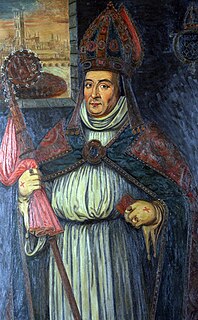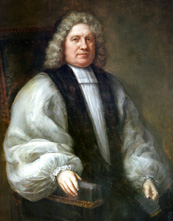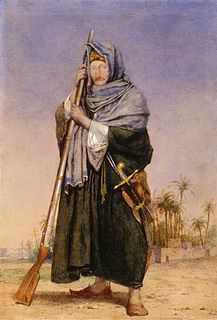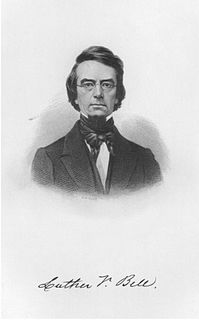Life
Carkesse was educated at Westminster School and Magdalen College, Oxford. He became head of Magdalen College School, in 1663, and was elected F.R.S. in 1664. He worked in the Naval Office in London later in the 1660s, clerking under William Brouncker in 1666. There he was known to Samuel Pepys, and Pepys's Diary gives details of Carkesse and his dismissal from the office in 1667 and reinstatement. He finally lost his position, in 1673. [1] [2]

Westminster School is an independent day and boarding school in London, England, located within the precincts of Westminster Abbey. With origins before the 12th century, the educational tradition of Westminster probably dates back as far as 960, in line with the Abbey's history. Boys are admitted to the Under School at age seven and to the senior school at age thirteen; girls are admitted at age sixteen into the Sixth Form. The school has around 750 pupils; around a quarter are boarders, most of whom go home at weekends, after Saturday morning school. The school motto, Dat Deus Incrementum, is taken from the New Testament, specifically 1 Corinthians 3:6.

Magdalen College is one of the wealthiest constituent colleges of the University of Oxford, with an estimated financial endowment of £273 million as of 2018. Magdalen stands next to the River Cherwell and has within its grounds a deer park and Addison's Walk. The large, square Magdalen Tower is an Oxford landmark, and it is a tradition, dating to the days of Henry VII, that the college choir sings from the top of it at 6 a.m. on May Morning.

Magdalen College School (MCS) is an independent day school in Oxford, England, for boys aged seven to eighteen and for girls in the sixth form. It was founded by William Waynflete about 1480 as part of Magdalen College, Oxford.
In the later 1670s he became delusional, and wrote a volume Lucida intervalla (1679) of doggerel verse, by which he is now remembered. He was confined in the private asylum of Thomas Allen at Finsbury, and then in the Bethlem Hospital, as indicated by the subtitle of the book. In 1683 he was head of Chelmsford School. [1] [3]
Doggerel is poetry that is irregular in rhythm and in rhyme, often deliberately for burlesque or comic effect. Alternatively, it can mean verse which has a monotonous rhythm, easy rhyme, and cheap or trivial meaning. The word is derived from the Middle English dogerel, probably a derivative of dog. In English it has been used as an adjective since the 14th century and a noun since at least 1630.

Samuel Pepys was an administrator of the navy of England and Member of Parliament who is most famous for the diary he kept for a decade while still a relatively young man. Pepys had no maritime experience, but he rose to be the Chief Secretary to the Admiralty under both King Charles II and King James II through patronage, hard work, and his talent for administration. His influence and reforms at the Admiralty were important in the early professionalisation of the Royal Navy.

Caius Gabriel Cibber (1630–1700) was a Danish sculptor, who enjoyed great success in England, and was the father of the actor, author and poet laureate Colley Cibber. He was appointed "carver to the king's closet" by William III.
James Tilly Matthews was a London tea broker, originally from Wales and of Huguenot descent, who was committed to Bethlem psychiatric hospital in 1797. His is considered to be the first fully documented case of paranoid schizophrenia.

Magdalene laundries, also known as Magdalene's asylums, were Roman Catholic institutions established and operated from the 18th to the late 20th centuries, ostensibly to house "fallen women". The term implied female sexual promiscuity or work in prostitution; young women who became pregnant outside of marriage, or whose male family members complained about their behavior were committed here. They were required to work as part of their board, and the institutions operated large commercial laundries, serving customers beyond the Roman Catholic Church.

Bethlem Royal Hospital, also known as St Mary Bethlehem, Bethlehem Hospital and Bedlam, is a psychiatric hospital in London. Its famous history has inspired several horror books, films and TV series, most notably Bedlam, a 1946 film with Boris Karloff.

William Waynflete, born William Patten, was Provost of Eton (1442–1447), Bishop of Winchester (1447–1486) and Lord Chancellor of England (1456–1460). He is best remembered as the founder of Magdalen College and Magdalen College School in Oxford.

Narcissus Marsh was an English clergyman who was successively Church of Ireland Bishop of Ferns and Leighlin, Archbishop of Cashel, Archbishop of Dublin and Archbishop of Armagh.
Samuel Parker was an English churchman, of strong Erastian views and a fierce opponent of Dissenters. His political position is often compared with that of Thomas Hobbes, but there are also clear differences; he was also called in his time a Latitudinarian, but this is not something on which modern scholars are agreed. During the reign of King James II he served as Bishop of Oxford, and was considered by James to be a moderate in his attitude to Catholics.

Edward Oxford was the first of eight people who tried to assassinate Queen Victoria. After Oxford was arrested and charged with treason, a jury found that Oxford was not guilty by reason of insanity and he was detained at Her Majesty's pleasure in the State Criminal Lunatic Asylum and later, in Broadmoor Hospital. Eventually given conditional release for transportation to a British colony, he lived out the remainder of his life in Australia.

The Monro of Fyrish family were a Scottish family and branch of the ancient highland Clan Munro. The family produced a notable dynasty of doctors to London in the 18th and 19th century where they were involved in early work on curing 'insanity'. Four generations occupied successively the position of (Principal) Physician of the notorious Bethlem Hospital (Bedlam). They were also leading members of a variety of important medical associations. Other members were painters, priests and philanthropists of note and one was an important early patron to J. M. W. Turner.
Baptist Levinz, sometimes Baptiste or Baptist Levinge, was an Anglican churchman. He is known as a bishop and also for the part he played in the dramatic election at Magdalen College, Oxford.

Thomas Monro (1759–1833) was a British art collector and patron. He was Principal Physician of the Bethlem Royal Hospital and one-time consulting physician to George III.
The Alleged Lunatics' Friend Society was an advocacy group started by former asylum patients and their supporters in 19th century Britain. The Society campaigned for greater protection against wrongful confinement or cruel and improper treatment, and for reform of the lunacy laws. The Society is recognized today as a pioneer of the psychiatric survivors movement.
Thomas Smith was an English scholar, expelled Fellow of Magdalen College, Oxford, and non-juring divine.
John Monro was a physician specializing in the treatment of madness at Bethlem Hospital in London, better known as Bedlam.

John Haslam (1764–1844) was an English apothecary, physician and medical writer, known for his work on mental illness. Haslam's case study of James Tilly Matthews is the earliest detailed description of paranoid schizophrenia.

Sir Thomas Phillips (1801–1867) was a Welsh lawyer, politician and businessman, known as a mayor of Newport in Monmouthshire.

Luther Vose Bell, M.D. was one of the thirteen mental hospital superintendents who met in Philadelphia in 1844 to organize the Association of Medical Superintendents of American Institutions for the Insane (AMSAII), now the American Psychiatric Association, and the first medical specialty society in the United States. He was also Superintendent of the McLean Asylum near Boston, from 1837 to 1855.
















